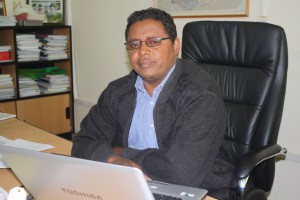 By Feyera Assefa (DSW Ethiopia, Country Director)
By Feyera Assefa (DSW Ethiopia, Country Director)
When the First World Conference on Women was organized by the United Nations in mid 1970s in Mexico, gender studies had for the first time scholarly embraced ‘women and development issue’ both as a theoretical and practical approach to development. It took the past four decades for ‘gender and development’ to become a dominant strand of thinking in the academic communities and among those of development practitioners.
Since then, many countries right across diverse socio-economic bases steadily constitute favourable policies toward ‘gender and development’. Ethiopia being one of those early arrivals among its peers to reform its economic policies way back some 24 years ago, it had already constituted one of the most favourable national policies and development programs that pave the paths for integrating gender and development. Such an enabling policy environment in which DSW (Deutsche Stiftung Weltbevoelkerung) fairly fared through the best parts of the past fifteen years in Ethiopia to develop and implement a development program one particularly focuses on empowering women attests to the positive progress being made through connecting gender with development in the context of the national mainstream economic growth drive.
DSW’s approach to gender and development issue hinges on a three-prong best practices. They are: capability-based approach, sexual and reproductive health needs and income-generating based activities. These three approaches often get subsumed under a single intervention to double down the impact on the empowerment of women and girls. Entrepreneurship and life skills training are parts of the capability-based empowerment through which to enhance both the opportunities for incomes and the ability to engage in life changing economic activities. DSW has directly provided for 7,000 women and girls in the informal sector the opportunities to fit for life in the formal economic sector.
In Amhara region where the prevalence rate of fistula cases is one of the highest in the country, DSW is committed to address the sexual and reproductive health needs of girls who otherwise would end up in an early marriage pitfall that would more often lead to the menace of fistula cases. It is DSW’s conviction that demands of equity and social justice for women are the direct product of women and girls’ empowerment process. In a nut shell, DSW’s projects implemented in Amhara and Oromia regions has primarily benefited more than 20,000 women and girls to become economically stable and sustainable.
